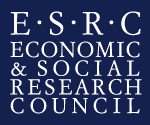The Care Pathways and Outcomes Study
This is a longitudinal study that has been following all the 374 children who were in care and under 5 years old on 31st March 2000 in Northern Ireland. This research aims to compare how these young people are getting on in their different types of placement. It also seeks to explore the levels of stability and placement breakdown that is occurring, and to identify the reasons for this.
Currently funded by the Economic and Social Research Council

-
Recent Posts
- Project Update 7: The need to know or/and search – is curiosity the right word?
- Regional variations in care planning
- Project Update 6: The well-being of care-experienced young adults in Northern Ireland
- Project Update 5: Youth’s experiences of (and future expectations of) parenthood
- Project Update 4: The 3 THINGS that are HELPING care-experienced young people COPE with difficult experiences in their lives
Categories
Tag cloud
- adoption
- belonging
- birth families
- birth parents
- care planning
- contact
- coping
- decision-making
- Deprivation
- digital technologies
- disabled young people
- disruption
- Early adversity
- education
- ethical considerations
- family
- foster care
- future
- health
- kinship care
- mental health
- parenting
- pets
- public engagement
- regional variations
- relationships
- research methods
- Residence Orders
- resilience
- searching
- social media
- social workers
- stability
- stress
- subjective well-being
- supports
- young parents
Recruitment video
Archives
Recent Comments
- Montserrat Fargas on About this blog
- Julia Rimmer on About this blog
- Montserrat Fargas on Project Update 4: The 3 THINGS that are HELPING care-experienced young people COPE with difficult experiences in their lives
- Brenda Horgan on Project Update 4: The 3 THINGS that are HELPING care-experienced young people COPE with difficult experiences in their lives
- Montserrat Fargas on Project Update 2: Placement disruptions are often not the end of the relationship
Meta
Author Archives: Montserrat Fargas
Poverty and social deprivation in the Care Pathways and Outcomes Study
Poverty and social deprivation is an issue that we have not really dealt with in our study in the past. However, it is a very relevant issue that we are becoming more interested in. Some of our recent interest has … Continue reading
Public engagement in research: Why we need the advice and collaboration of voluntary and statutory organisations, young people and parents/carers
Public engagement is a ‘buzzword’ now in academic research in a great range of disciplines. But it is much more than the latest fad, or something that can be seen as an optional extra, it is a formal requirement from … Continue reading
Posted in Research
Tagged digital technologies, ethical considerations, public engagement
Leave a comment
The digital media and young people’s social relationships
Digital technologies have changed the ways in which we relate to each other, work and play, and might have even altered who we are. These changes are happening rapidly. The online and offline world are starting to feel interconnected, especially … Continue reading
Posted in Phase 3 findings, Support
Tagged digital technologies, relationships, social media
1 Comment
Young people’s sense of belonging: The importance of ‘family practices’
Feeling of belonging to a family is likely to be very important for the young people in our study at this early adulthood stage of their lives. We will be asking questions in relation to this key issue when we … Continue reading
Friends, pets, and social workers: who is important in young people’s lives and why
We are social beings, and relationships are crucial. We need other people to help and support us in different ways throughout our lives, from birth to old age: to take care of us and give us affection when we are … Continue reading
Posted in Phase 3 findings, Research
Tagged pets, relationships, social workers, supports
Leave a comment
RESILIENCE: A blurry concept
Despite experiencing early adversities, some young people in care go on to live happy and ‘successful’ lives. The question many have been trying to understand is what makes some young people do considerably better than others, when they all experienced … Continue reading
Childhood adversity and the dilemmas of measurement
There is a growing body of evidence showing the impact of multiple childhood adversities on later outcomes, particularly in relation to mental health. Adverse childhood experiences are described as coming from a situational context, such as living in poverty or … Continue reading
Posted in Debates, Research
Tagged Early adversity, ethical considerations, research methods
Leave a comment
Positive family relationships make disabled young people feel good (just as their non-disabled peers)
This is a post by Grace Kelly. Grace is a Research Fellow in the Centre for Evidence and Social Innovation (CESI). “Disabled children are over-represented in looked after children populations and it is estimated that between 10 and 25% of … Continue reading
Health and wellbeing of care experienced young people – a crucial concern of this study
“Health is a state of complete physical, mental and social well-being, and not merely the absence of disease or infirmity.” (World Health Organization) Social inequality is associated with poor health for certain vulnerable social groups. Children in care are one … Continue reading
What does formal education mean for care experienced young people?
“Education is not preparation for life; education is life itself” (John Dewey) In Northern Ireland, in 2013/2014, 73% of looked after children attained at least one GCSE/GNVQ at grades A* to G; compared to nearly 100% of the general school … Continue reading
